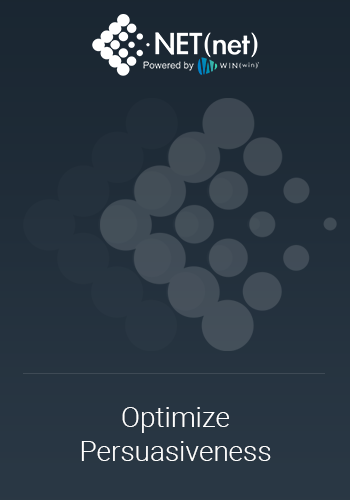- From January Issue, Manager-Magazin - click here.
- Original Article - click here.
- To download original PDF in German - click here.
- To download translated PDF in English - click here.
LITTLE BIG BLUE
(translated)
IBM: The turnover of the US technological icon has been shrinking for years. If super-brain Watson fails to bring about the turnaround, CEO Virginia Rometty will probably have to go.
For Virginia Marie Rometty (59), called Ginni, the domination of the world is only a matter of time. At the end of October, at her in-house exhibition in Las Vegas, the chief executive of IBM announced that in five years her computer technology will influence “every decision” on this planet.
The task for IBM's superbrain Watson is clear – it must solve “the biggest problems of the world.” In a few years, this market, called Cognitive Computing, is expected to be worth an incredible two trillion dollars. Rometty claims that more than one billion people will be using the in-house “moonshot” technology as early as 2017.
The magic word is Artificial Intelligence (AI). With such a pitch a techie from the Silicon Valley would certainly have the chance for a life-sustaining venture capital shot. But IBM is not a new company – even though Rometty likes to describe her Big Blue as a “105-year old start-up.”
The large corporation lacks the most important criterion for this type of company – dynamism.
Instead of growing, the IT dinosaur is shrinking almost chronically. Since the electrical engineer moved to the top of the corporation in 2012, the revenue from the sale of high-performance computers, storage systems, software, IT services and consulting has fallen in 18 consecutive quarters.
It is true that the turnover had already almost stagnated under her predecessor Sam Palmisano. However, in his last year of office in 2011 it was still at almost 107 billion dollars. After five years with Rometty at the top, it is only at around 80 billion dollars.
“Rometty is the worst CEO the technology industry has ever seen,” criticizes Steven Zolman, founder of the US technology consultancy NET(net) – male colleagues and Carly Fiorina, who has failed dismally at HP, included. It is incomprehensible to him how the computer scientist from Chicago manages to stay at the top.
However, the answer is quite simple: profit. In recent years, despite stagnating margins, IBM has still been earning around 13 billion dollars per year.
The chief executive distributes a large part of this profit in the form of dividends to the shareholders – above all to the value investor Warren Buffet. The owner of the Berkshire Hathaway holding company owns almost 8.6% of IBM, and because he has remained silent up to now, the supervisory board has not protested either. Rometty has been allowed to continue.
The patience of Buffet and Co. is running out – that is the rumor in business circles. The analysts, who predominantly do not recommend purchasing the securities, have long been criticizing the negative trend of the turnover. Five years on a new course without a noticeable effect is a very, very long time, even for the shareholders of a supertanker like IBM.
In 2017 Rometty must finally show growth with regards to both turnover and profit. Otherwise she might end up like the management of HP, the other US technological legend. It was disrupted personally. All hope now rests on the legendary Watson. For the future of IBM – and her own – Rometty is betting everything on the in-house artificial intelligence. “A big bet,” she admits, “but not a risky one.”
The name of the self-learning system itself is already full of optimism: Thomas J. Watson was the man who founded IBM. His son of the same name, who was, according to the US magazine Fortune, the greatest capitalist in history, had increased the turnover of the emerging information technology company tenfold in the period between 1956 and 1971.
Can the supercomputer, which defeated the champions of the game show Jeopardy in 2011, actually start the long-awaited turnaround and again transform IBM into a technological asset.
Rometty’s past work raises doubts. Nothing that the IBM veteran (she started in 1981 as a system engineer) has tried as a chief executive has worked. Initially she continued the stock exchange strategy of her predecessor. He had wholeheartedly promised the shareholders to produce a profit of 20 dollars per share by 2015.
Rometty has pursued this goal using all available means. After all, her bonus (most recently 4.5 million dollars) is based on this figure. Each year she has bought back shares worth several billion dollars in order to spread the profits over fewer securities.
In order to cut costs, she has dismissed several well-paid IT specialists and shifted more and more of the operating business to low-wage economies. It has been estimated that today more than 100,000 of the approximately 380,000 IBM employees are based in India. Initially this has caused trouble for Rometty with the US president-elect Donald Trump, who has promised more domestic jobs to his voters. Now she is part of his advisory team, striving to prevent further adversity for her corporation.
Futile Efforts
In order to reduce costs, the CEO has also abandoned less profitable divisions. She has handed the small-server business to the Chinese computer company Lenovo, which had already purchased the PC division from Palmisano in 2005. The chips went to Globalfoundries for a dowry of 1.5 billion dollars.
However, neither the balance sheet contraction nor the outsourcing have brought the desired gain in productivity and profit. The turnover per employee decreased by about 20 percent between 1999 and 2015 according to the author Peter E. Greulich, who has already written several books about IBM. The net result per employee has not increased for 16 years despite all attempts at improvement. In 2014 Rometty abandoned her strategy and cancelled the ambitious plan of raising the profit to 20 dollars per share.
At the time the corporation was facing problems that were more existential than the failure to meet a profit target. Because of all the futile profit optimization, it had missed out on the fundamental technological change to cloud computing. IBM had continued to offer expensive, highly complex systems on which companies managed their data in-house. It had provided almost no simple IT services from the data cloud which were payable per use.
Its failure was exposed in 2013 when the CIA awarded a cloud contract for over 600 million dollars to Amazon Web Services (AWS) and not to IBM. An embarrassing trial, which had been initiated by Rometty, revealed: The offer by Big Blue had been cheaper but had not satisfied the requirements of the clients. IBM had officially mutated into a dinosaur – technologically no longer competitive.
The traditional business kept collapsing faster and faster, and the corporation had little to offer in regards to future issues. Rometty acquired a number of companies, such as Softlayer. She paid two billion dollars for the provider of cloud infrastructure and invested another billion in its computer centers. But the competition could offer an increasing number of services that were more interesting. Today the Amazon subsidiary AWS is the uncontested market leader in the cloud business with a market share of 31 percent. IBM is far behind at 7 percent.
Because the turnover continued to crumble and customers were moving away, Rometty kept buying new companies – hitherto almost 50. She acquired Trusteer, an Israeli specialist for IT security, for one billion dollars. In order to compete in social networking and e-commerce, she collected three digital agencies – two of them from Germany.
She has even entered into strategic partnerships with former mortal enemies like Apple to revive the trend topic of mobile computing with business apps.
The acquisitions boosted the turnover of the growth areas dubbed Strategic Imperatives. The divisions Mobile, Social, Security and Cloud now account for more than 40 percent of the turnover. However, the gains cannot compensate for the decline of the core business.
Harriet Green (55) deliberately overlooks this fact. The Briton traverses the 26th floor of the Highlight Towers in the north of Munich with energetic steps. The former CEO of the travel agent Thomas Cook supposedly has a good chance of succeeding Rometty.
At the moment, however, the head of the Internet of Things (IoT) division at IBM is stepping over open cable ducts and hurrying past half-finished presentation walls. This is where, at the beginning of 2017, the new Watson IoT centre is to be opened to generate big Industry 4.0 deals. Three billion dollar investments in the new Watson segment are expected to create strong growth rapidly.
There is no doubt for the business psychologist that the transformation of Big Blue will be a success. “IBM has been reinvented more than once.” After that her presentation cannot be stopped: 6000 paying customers have already been won for the networking of things. Watson is already providing good services in predictive maintenance for the elevator manufacturer Kone and the supplier Schaeffler. She claims to have signed a deal with BMW recently – contents are still secret. In any case, Watson is supposed to be truly amazing, brilliant, unbeatable.
Matt Candy (41), the European head of the in-house digital agency IBM iX, is also enthusiastic about the super computer. IBM has built a Watson based car entertainment system called “Onstar Go” for GM. Advantages for the driver? He can order his favorite coffee on the dashboard, pay the fuel bill without leaving the car. “We are completely re-thinking the experience in the car,” says Candy.
Rometty has committed her followers to the great beacon of hope Watson. The marketing machinery is in full swing. Whatever innovations the corporation has had to announce since the beginning of 2015 have received the label Watson.
The superbrain even appeared at the fashion gala in the Metropolitan Museum of Art – at least virtually: The model Karolina Kurkova strutted over the red carpet in a dress fitted with 150 LED lamps. The colors in which they glowed were calculated by Watson. For this purpose, he analyzed the feelings of Kurkova’s fans based on their posts about the gala on the internet: joy made the dress shine pink, excitement water-blue.
“It is truly spectacular what Watson can do,” says Ronnie Vuine, AI scientist and founder of the Berlin start-up Micropsi Industries. He claims the big-data technology is unbeatable in speech processing as well as in medical expertise and weather forecasts. In order to put these skills into practice, IBM has bought the healthcare provider Truven for 2.6 billion dollars and the technological part of the Weather Company for 2 billion dollars.
Watson can even correctly interpret the subtleties of the human language. Used by the Bavarian insurance company VKB, the computer recognizes whether a writer is being honest or ironic when expressing gratitude for a quick completion of a case.
All very impressive for an electronic brain. But do Watson’s abilities also impress new big business customers? Frank Niemann, industry analyst at the consulting company PAC, notices the absence of any convincing practical examples: “The market for cognitive technologies is still only maturing.” He believes that the applications presented by IBM are by no means “big business.”
Encouraging a guessing game about the use of the magical machine seems to be quite deliberate by the clever IBM marketeers. With all those stories about cute robots that question professors or about researchers defeating cancer thanks to cognitive techniques, they have created an aura of a universal genius.
In accordance with the IBM philosophy, companies must figure out by themselves how to gain a competitive advantage from the abilities of this jack of all trades. Of course, the in-house experts are ready to provide them with advice and assistance. For example, 1500 new consultants are supposedly working for Watson IoT alone.
Chief Salesman Watson
Meaning: Watson also serves as a powerful sales argument for the more traditional products of Big Blue – comprehensive consulting projects whose implementation ideally leads to the sale of mainframe computers and power servers, software and service, or the subscription to IBM cloud services.
Sebastian Krause, European head of the cloud business, puts it quite bluntly:
“Watson is the decisive differentiation feature of IBM Cloud.” According to Krause, it is also capable of seamlessly combining with systems that are already part of the company.
This also reveals Rometty’s new strategy. With the hype surrounding Watson, she wants to fuel the familiar IBM business with large-scale projects. It remains to be seen whether customers will be convinced.
Consultant Steven Zolman, whose team advises around 2000 technology buyers and who has negotiated more than one billion dollars worth of IBM contracts in December alone, is skeptical. “None of my customers want to make new innovative deals with IBM,” he summarizes the wishes of his clients. Instead, he claims, all of them plan to cut their spending on IBM products and to reduce the share of Big Blue in their IT.
A damning verdict – and certainly too radical. After all, Big Blue has an enormous number of customers who have had IBM machines standing in their basements for decades. They are so dependent on their historically grown legacy systems that they remain loyal to IBM. Therefore, they also buy cloud offers that are suitable for their technical heritage, just like American Airlines has done recently.
Allegedly no one sees any reason to buy from IBM. According to Zolman, the offers of the competitors have been much more attractive for a long time. “IBM is dead,” says Zolman. “They just haven't noticed it yet.”
However, a dynamic growth business with rich margins is hard to create from the maintenance and development of old stock. Therefore, even insiders secretly suspect that IBM will become an even smaller company in the future despite all transformation efforts.
The shareholders cannot be pleased about this slow decline. But Rometty will not be dissuaded from her plan, believing that it is the only way forward. “Don’t let anyone tell you what is possible and what isn’t,” she preached in mid-October in a presentation during the “Women in Computing” conference. The IBM head told the 15,000 listeners that her stubborn faith in herself had been inspired by her mother. She explained that her mother had nurtured four children as a single parent while studying: “My mother never let anyone define her as a failure.”
And the daughter will not allow it either.
Eva Müller
See NET(net)'s latest article on Ginni's departure here: https://www.netnetweb.com/content/blog/shrinking-story-of-ibms-ginni-rometty-article-4
Notice
NET(net)’s Website/Blogs/Articles and other content is subject to NET(net)’s legal terms offered for general information purposes only, and while NET(net) may offer its unadulterated views and colorful opinions regarding the subject matter, such views and opinions are not intended to malign or disparage any other company, individual, or group.
About NET(net)
NET(net) is a global disruptive industry force for good and has the experience you want, the expertise you need, and delivers the performance you demand to help you save money and improve value. NET(net) is the world’s only fully technology-enabled consultancy exclusively specializing in full service optimization of the technology supply chain, bringing clients and suppliers together to create winning markets and winning relationships.
We help clients:
- Find Value in their professional supply chain through strategic sourcing efforts designed to align client need to supplier capabilities while leveraging our objective, evidenced based processes to deliver optimized supplier proposals.
- Get Value in a custom marketplace created through bespoke supplier negotiation assistance, leveraging our federated market intelligence, resulting in improved commercial arrangements and strengthened contractual agreements.
- Keep Value in their organization through proactive industry best strategic supplier performance management of the agreement, the investment and the relationship, resulting in better, more sustainable business partnerships designed to deliver long term sustainable business value.
With clients around the world in nearly all industries and geographies, and with the experience of tens of thousands of field engagements, we have helped our clients capture hundreds of billions of dollars of incremental value. Contact your NET(net) representative, email us at dsiglin@netnetweb.com, visit us online at www.netnetweb.com, or call us at +1-866-2-NET-net today to see if we can help you capture more value.

















